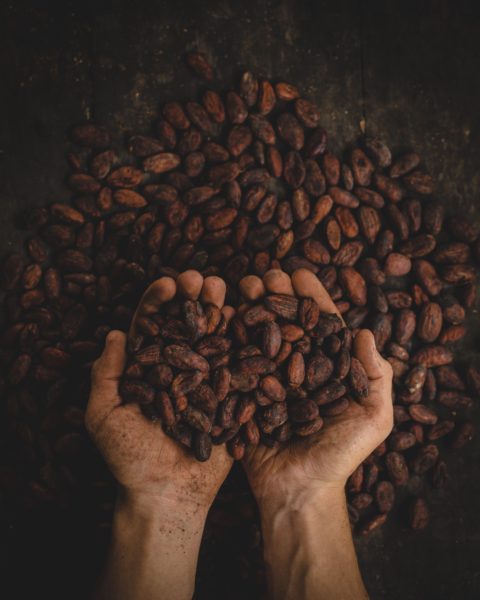
I want to thank Prof. Kim Brown for this guest post:
Can a person be too interested in chocolate? I think not. We can see all dimensions of issues in international and global studies through the omniscient chocolate bar. This time of the pandemic once again reveals the fragile nature of the lives of cocoa producers, their product, and consumers. This post explores what has happened to cocoa and chocolate during the past 14 months.
While major multinational companies such as Cargill, Mars, Wrigley, Kraft, and Callebaut continue to publicly endorse responsible sourcing and long term planning for sustainability, they are not always able to achieve their goals. The pandemic has made these goals particularly unattainable. Even as members of the confectionery industry remain committed to key goals –vanquishing child labor and land deforestation, providing better attention to the needs of women farmers and guaranteeing a living wage to farmers– the past 13 months have seen few achievements in these areas. Nevertheless smaller projects have seen success. For example, Barry Callebaut has provided support to African Startup Seekewa. Divine Chocolate has underwritten literacy programs in Ghana.
Product prices have fallen and the two countries producing 60% of the world’s chocolate –Ghana and Cote d’Ivoire– face not only falling prices but a surplus of cocoa brought on by COVID in the past 14 months. Initiatives to ensure farmers receive a living wage remain in place. Plans are good but implementation is not always successful. A key example in this area is the Living Income Differential levied in the amount of $400 per ton proposed in both countries. It is designed to offset current low global prices. In central American producing areas such as Guatemala and Honduras, small farmers have struggled to get their products to market.
For those interested in more information about chocolate, I would encourage you to consider subscribing to Confectionary News. While this is an official newsletter of the industry, it curates a wide range of information on everything chocolate from industry reports to NGO reports. One of particular interest at this moment might be the Easter Scorecard from Be Slavery Free. This annual report in infographic form profiles how well roughly 20 chocolate producers are doing in areas from Fair Trade to child labor, to deforestation and providing a living income to farmers. It is also possible to work through global websites that detail statistics, trends, and follow the cost of COVID.. They include The International Cocoa Organization (ICCO), Confectionery News profiled above, and The Cocoa Initiative.
If you prefer podcasts and Twitter, Oliver Nieberg who has a number of rich podcasts about the industry has now moved to Lumina Intelligence and directs the Sustainable Food and Drink podcast. There are also powerful films including the 2012 film Shady Chocolate Business.
On the supply chain end of things, niche marketing and futures predictions have given small chocolatiers a run for their money over the past 13 months. In spite of this, we see trends such as less plastic packaging, more biodegradable packaging especially on the part of the larger companies, and an increase in various types of vegan chocolate. Companies such as Nestle have introduced a chocolate bar with no added sugar, only cocoa fruit and pulp. It is the Incoa chocolate bar, currently only available in France and the Netherlands. Other companies are infusing new ingredients from ancient sources such as baobab powder.
Those of us working from home seem to have discovered more and more chocolate to buy but as we return to the workforce outside our homes it remains to be seen what we will do. In any case, keeping track of the chocolate bars around us is a very appropriate activity for consumers, researchers, and activists.
Kim Brown, Portland State University

